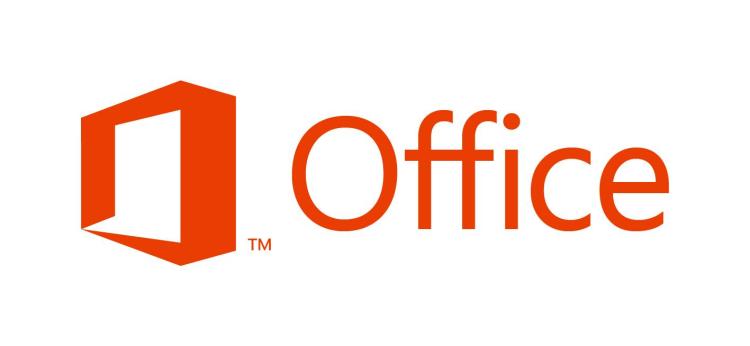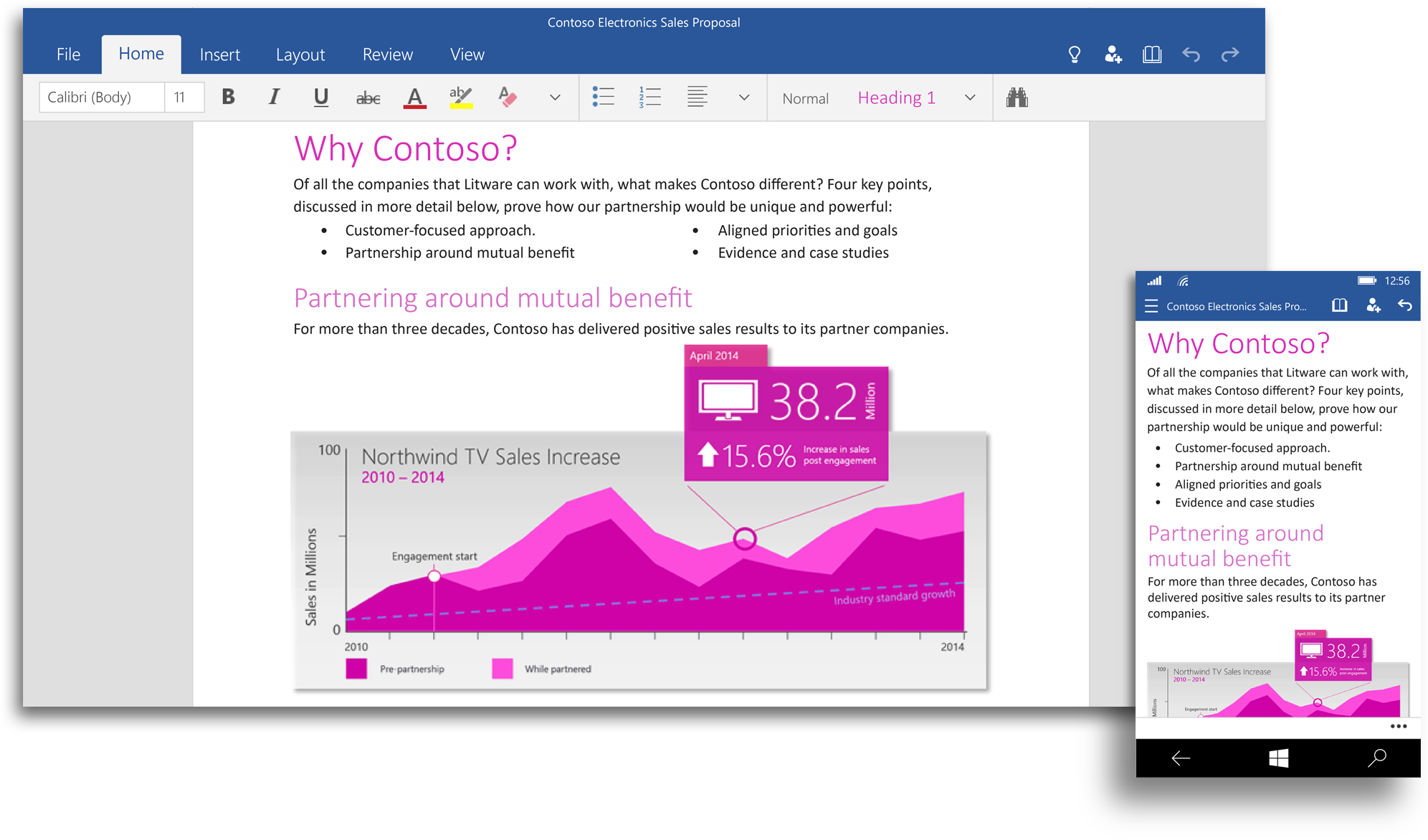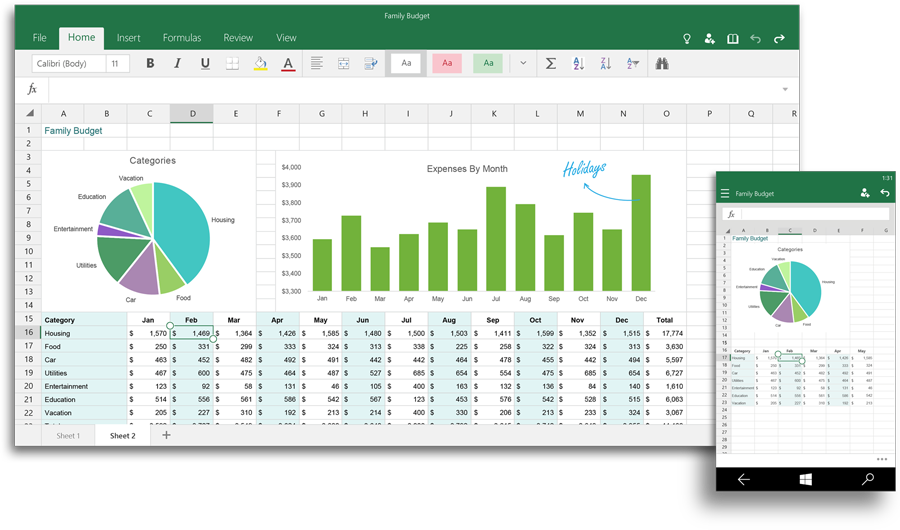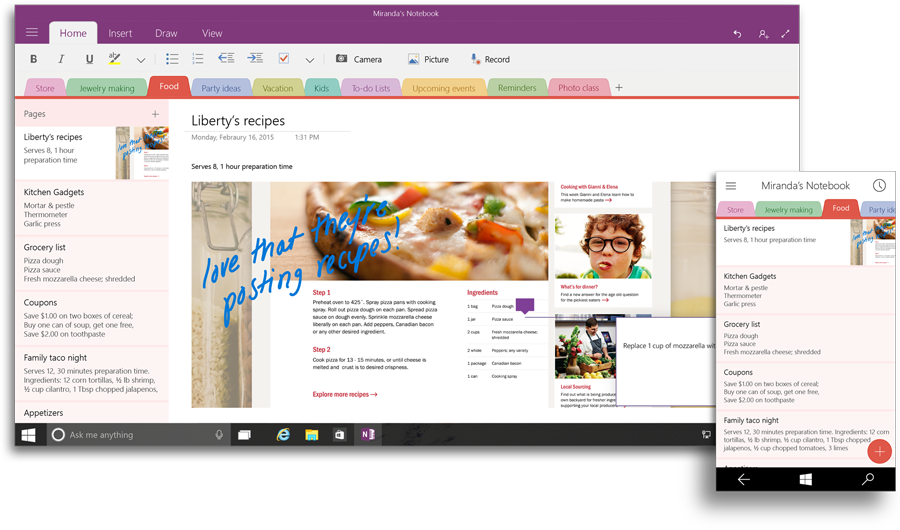At its Windows 10 event yesterday, Microsoft unveiled the touch-optimized version of Office. Today, the company offered more details about that version, and then snuck in another announcement: The next desktop version is under development, it is called Office 2016, and it will be generally available “in the second half of 2015.”
Office 2016, previously referred to as Office 16 (a happy coincidence, as Office 15 was named Office 2013), is right on schedule. The last three versions of the productivity software were all released approximately three years apart, as their names indicate: Office 2007, Office 2010, and Office 2013.
Microsoft said it will have more to share on Office 2016 “in the coming months.” Despite the touch version, Office 2016 “will remain the comprehensive Office experience you’re long familiar with, best suited for a PC with keyboard and mouse,” Microsoft explained.
Microsoft did not reveal any upcoming features it is planning for Office 2016. That said, screenshots and early builds have been leaking since at least September, so the new version has hardly been a secret. The news today is mainly a formality: Office 2013 will be succeeded by Office 2016.
Office for Windows 10 (Word, Excel, PowerPoint, OneNote, and Outlook), meanwhile, is also slated to arrive later this year, though Microsoft has shared more about it and plans to offer a preview in the coming weeks. In case you missed the quick demo yesterday, this video gives you a closer look of the software running on a tablet:
These new Office apps will be pre-installed (for free) on smartphones and small tablets running Windows 10. They will also be available to download from the Windows Store for other devices.
The company today also released official screenshots of these touch-optimized versions, included below.
Word for Windows 10
The touch-optimized Word app lets you create, edit, review, and mark up documents. You can also share your work with others to collaborate in real time. The new Insights for Office feature (powered by Bing, and first available in Office Online) in Read mode brings additional online resources like images, web references, and definitions right into your reading experience.
Excel for Windows 10
The touch-optimized Excel app lets you create and update spreadsheets, analyze data, and visualize it with charts. The touch-first controls let you select ranges of cells, format your charts, and manage your workbooks. Microsoft claimed “you won’t even miss your keyboard and mouse,” but we’re doubtful.
PowerPoint for Windows 10
The touch-optimized PowerPoint app lets you create and edit presentations. It features a Presenter View for preparing, presenting, and even annotating your slides as you go.
OneNote for Windows 10
The touch-optimized OneNote app lets you write your thoughts, ideas, and to-dos. It has collaboration features for working with friends, classmates, and colleagues via a shared notebooks view.
Outlook Mail and Outlook Calendar for Windows 10
The touch-optimized Outlook app features Word built into the authoring experience. You can insert tables, add pictures, and use color as needed. New touch gestures help you read, sort, flag, and archive your mail.
A big year for Office
In summary, Microsoft is pushing hard with the new Office release. 2015 will bring a slew of new software across all of the company’s own platforms, as well as third-party devices.
The touch-optimized version looks great, and will undoubtedly help Windows 10. We don’t know much about Office 2016 yet, but the good news here is that it appears to be on schedule and Microsoft is plowing forward despite its Office efforts elsewhere.
It’s only January, and already Microsoft is giving Office users a lot to look forward to this year.
VentureBeat's mission is to be a digital town square for technical decision-makers to gain knowledge about transformative enterprise technology and transact. Learn More






